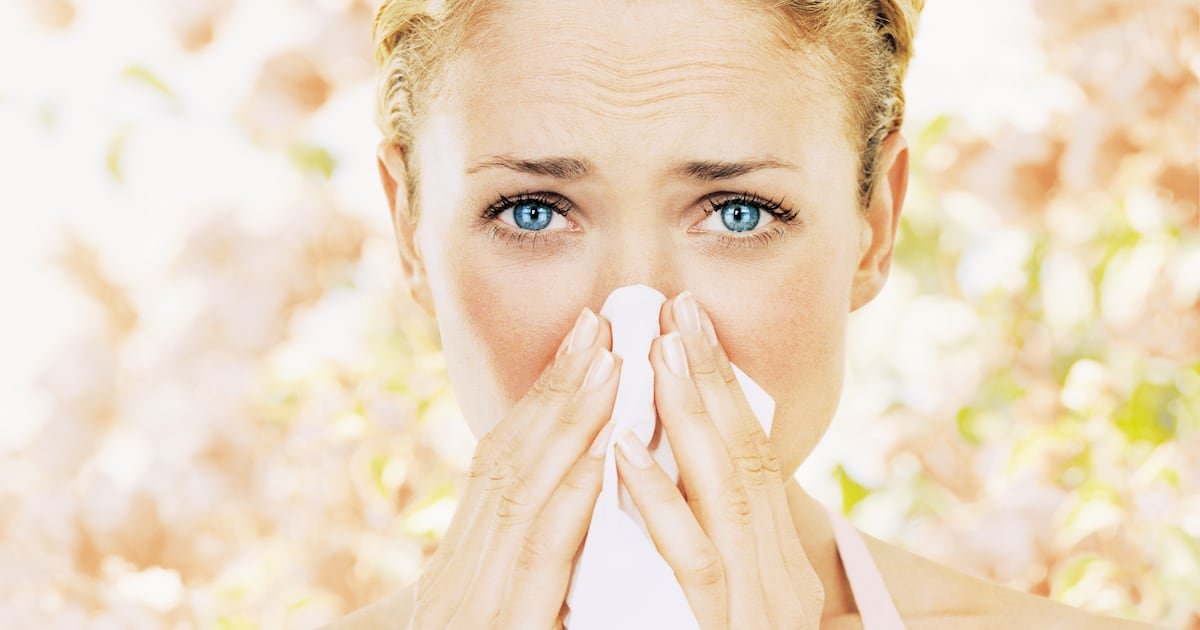With pollen season in full swing, have you started stocking up on antihistamines? If you suffer from hay fever, the long summer days this time of year can have a big impact on your quality of life.
Hay fever, also known as “seasonal allergic rhinitis,” is estimated to affect 26% of the population. Symptoms can range from mild nasal congestion and sneezing to more severe symptoms such as itching, redness, inflammation, and eye irritation.
Hay fever is an allergic reaction to pollen, and depending on which type of pollen your immune system reacts to, your worst symptoms may have happened in the past or you may be starting to experience them now.
Many people use nutritional supplements and supplements along with over-the-counter antihistamines to manage and prevent symptoms. Here are some ideas to help you stay comfortable during pollen season.


low histamine diet
Histamine is an important part of the immune system’s defense system. It is produced by white blood cells called mast cells, which act as “bouncers” and help protect the body from invaders that the immune system considers harmful.
As a first step, we recommend cutting down on pickled and salted foods, processed foods, and alcohol. Eat as much fresh food as possible and avoid leftovers as they tend to have high histamine levels.
Unfortunately, in the case of hay fever, your immune system mounts an immune response to pollen, causing your mast cells to release histamine every time you are exposed to pollen. This promotes an inflammatory response, causing symptoms such as a runny nose, stuffy nose, watery eyes, itching, swelling, and redness.
Low-histamine diets are used by many allergy sufferers to manage their symptoms. This is a way to lighten the load and reduce the overall histamine response. Many foods contain histamine or stimulate the production of histamine. Although it is impossible to avoid foods that produce histamine, it is certainly possible to reduce your intake.
Histamine is produced when food is fermented, cooked, cooled, stored or preserved. Foods that contain histamine include:
- Fermented foods: kombucha, sauerkraut, aged cheese, yogurt, kefir, sour cream (probiotic foods)
- Cured meats: sausages, salami, smoked ham, bacon, smoked fish
- Canned fish: salmon, mackerel, tuna
- Vinegar
- pre-packaged cooked meals
- Legumes: chickpeas, soybeans, lentils
- spinach
Several other foods can cause histamine reactions in the body, and these include:
- citrus fruit
- avocado
- Additive
- Preservative
- alcohol
- tomato
Of course, some of these foods are really healthy, and removing any food group from your diet can increase your risk of nutrient deficiencies.
As a first step, we recommend cutting down on pickled and salted foods, processed foods, and alcohol. Try to eat as much fresh food as possible and avoid leftovers as they tend to increase histamine levels.
For many people, this alone is sufficient to provide benefits without removing anything else from their diet.
Adding some antihistamine foods at the same time would be a great idea.
- Vitamin C is an important natural antihistamine, so with a few exceptions (see list above), we recommend consuming most fruits and vegetables. For a good dose of vitamin C, instead of reaching for an orange, choose berries, cherries, blackcurrants, or green peppers.
- Garlic, onions, and apples contain an important antihistamine nutrient called quercetin. Incorporate more of them into your diet.
- Ginger and turmeric have anti-inflammatory properties, so add them to curries or smoothies whenever possible. Also pay attention to herbal teas containing these two spices.
- Nettle has antihistamine properties. Nettle soup can be made in the spring using young, fresh nettles. Always wear gloves when picking nettles. However, an easy way to incorporate this herb into your diet is to drink it in tincture form or as a tea.
Visit your local independent health food store and purchase quercetin with vitamin C and bromelain. It has been shown to help reduce the severity of allergy symptoms, support a healthy immune response, balance inflammation, and support the airways.

